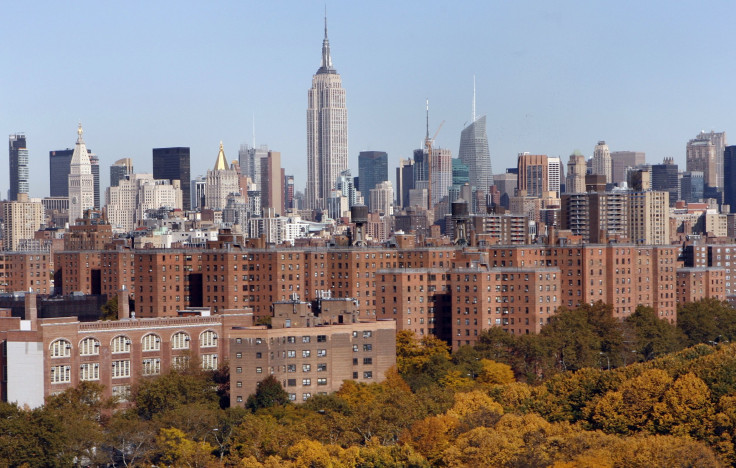Mayor Bill De Blasio To Unveil Plans To Overhaul Deficit-Ridden NYC Housing Authority: Reports

New York City Mayor Bill de Blasio is expected to announce plans on Tuesday to fix the city's public housing authority, which currently faces a ballooning budget deficit. The New York City Housing Authority (NYCHA), which serves over 400,000 people, has an operating deficit of $98 million this year.
As part of the plan, de Blasio is expected to cut operational costs at NYCHA through a broad redeployment of staff, and find new ways to fund affordable housing through a modified version of an earlier proposal to use unused land -- such as empty lots -- for housing projects.
“The scale of NYCHA’s problems far exceed the ability of one municipality to solve them,” Ritchie Torres, chairman of the City Council’s committee on public housing, reportedly said. “NYCHA is essentially a ticking time bomb.”
The housing authority currently needs a total of $16 billion for repairs and upgrades in nearly 180,000 apartments and houses. In order to fund this effort, the proposal would recommend transferring money to housing programs that allow private companies to lend money for repairs, the New York Times reported.
“Some of the things are not going to be popular,” Michael Dardia, a former deputy director of the city’s Office of Management and Budget, told the Times. “But if they’re going to provide subsidized housing, these are the kinds of steps they need to take.”
In order to increase funding to fill the NYCHA’s operating deficit, the new proposal would also include plans to increase rent collections and charges for parking spaces.
Parts of the new plan are “politically undesirable but financially necessary,” Torres reportedly said, adding that unless NYCHA generates significantly more revenue, “you’re condemning public housing to demolition by neglect.”
A recent audit by City Comptroller Scott Stringer found that “missing goods, incomplete record keeping and other lax controls” at NYCHA had put over $100 million in housing inventory at risk.
Moreover, according to a recent estimate by the Citizens Budget Commission -- an independent nonprofit fiscal advocacy group -- NYCHA’s operating deficit is projected to climb to $400 million by 2019, threatening the survival of the city’s single-largest housing program.
© Copyright IBTimes 2024. All rights reserved.












